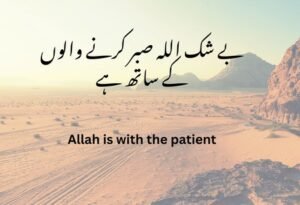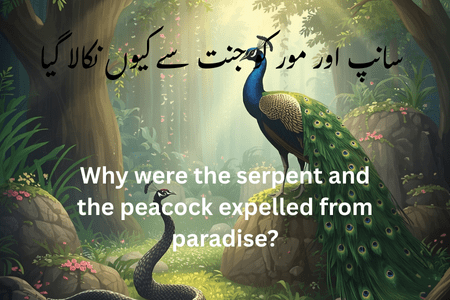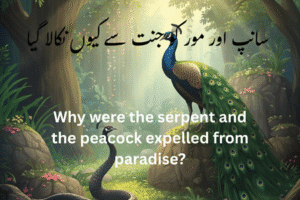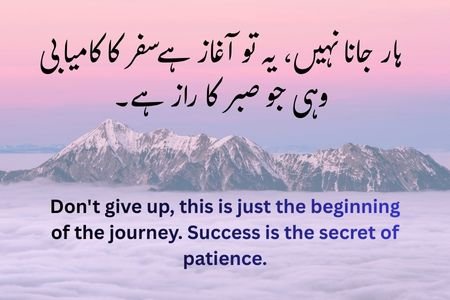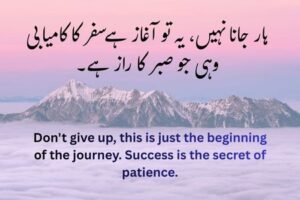
For English Reading please Scroll down…
To read more Islamic Information…CLICK HERE
ایمان، یقین اور اللہ کی رزاقیت کا سبق آموز قصہ
تعارف: مہمان کا رزق ایک سچا اور عجیب واقعہ
مہمان کا رزق ایک سچا اور عجیب واقعہ ہمیں یہ سکھاتا ہے کہ رزق کا مالک صرف اللہ تعالیٰ ہے، اور وہ جسے چاہے، جہاں سے چاہے عطا فرماتا ہے۔ اس دنیا میں انسان اپنی محنت اور منصوبہ بندی پر بھروسہ کرتا ہے، مگر مہمان کا رزق ایک سچا اور عجیب واقعہ ثابت کرتا ہے کہ اللہ کی تدبیر انسانی حساب سے کہیں بڑھ کر ہے۔
مہمان کا رزق ایک سچا اور عجیب واقعہ ایک ایسے سادہ گھر سے شروع ہوتا ہے جہاں ایک غریب مگر دیندار خاندان رہتا تھا۔ گھر میں وسائل محدود تھے، مگر دل وسیع اور نیت صاف تھی۔ اس خاندان کا یقین تھا کہ مہمان رحمت بن کر آتا ہے، اور یہی یقین مہمان کا رزق ایک سچا اور عجیب واقعہ کی بنیاد بنا۔
اچانک آنے والا مہمان: مہمان کا رزق ایک سچا اور عجیب واقعہ
ایک شام اچانک دروازے پر دستک ہوئی۔ مہمان کا رزق ایک سچا اور عجیب واقعہ اسی لمحے نیا رخ اختیار کرتا ہے۔ دروازے پر ایک اجنبی مسافر کھڑا تھا، جس کے چہرے پر تھکن نمایاں تھی۔ میزبان نے بغیر سوچے سمجھے اسے اندر بلالیا، حالانکہ گھر میں کھانے کو بمشکل چند خشک روٹیاں تھیں۔ یہی وہ لمحہ تھا جہاں مہمان کا رزق ایک سچا اور عجیب واقعہ جنم لیتا ہے۔
To read more Islamic Information…CLICK HERE
دل کی کشمکش: مہمان کا رزق ایک سچا اور عجیب واقعہ
مہمان کا رزق ایک سچا اور عجیب واقعہ کے اس حصے میں میزبان کے دل میں عجیب کشمکش تھی۔ وہ سوچ رہا تھا کہ مہمان کو کیا کھلایا جائے؟ مگر اس کے دل میں یہ یقین بھی تھا کہ اللہ مہمان کو خالی نہیں لوٹاتا۔ اسی یقین نے مہمان کا رزق ایک سچا اور عجیب واقعہ کو آگے بڑھایا۔
نیت کی آزمائش: مہمان کا رزق ایک سچا اور عجیب واقعہ
مہمان کا رزق ایک سچا اور عجیب واقعہ ہمیں بتاتا ہے کہ نیت اصل چیز ہے۔ میزبان نے گھر والوں سے کہا کہ جو کچھ ہے، وہی پیش کر دیتے ہیں۔ سب نے رضامندی ظاہر کی۔ یہ وہ لمحہ تھا جب مہمان کا رزق ایک سچا اور عجیب واقعہ میں اخلاص شامل ہوا، اور یہی اخلاص اللہ کو پسند آتا ہے۔
حیران کن برکت: مہمان کا رزق ایک سچا اور عجیب واقعہ
جب کھانا پیش کیا گیا تو سب حیران رہ گئے۔ مہمان کا رزق ایک سچا اور عجیب واقعہ اس وقت مزید حیرت انگیز ہو گیا جب تھوڑا سا کھانا سب کے لیے کافی ثابت ہوا۔ روٹیاں ختم ہونے کا نام نہیں لے رہی تھیں۔ یہ منظر دیکھ کر میزبان کی آنکھوں میں آنسو آ گئے۔ مہمان کا رزق ایک سچا اور عجیب واقعہ اللہ کی برکت کا زندہ ثبوت تھا۔
مہمان کا انکشاف: مہمان کا رزق ایک سچا اور عجیب واقعہ
کھانے کے بعد مہمان نے ایک عجیب بات کہی۔ مہمان کا رزق ایک سچا اور عجیب واقعہ کے مطابق اس نے بتایا کہ وہ کئی گھروں پر گیا، مگر کہیں دروازہ نہ کھلا۔ اس نے کہا کہ اسے یقین تھا کہ اللہ کہیں نہ کہیں اس کے رزق کا انتظام کر دے گا۔ اس انکشاف نے مہمان کا رزق ایک سچا اور عجیب واقعہ کو مزید گہرا کر دیا۔
To read more Islamic Information…CLICK HERE
میزبان کے لیے سبق: مہمان کا رزق ایک سچا اور عجیب واقعہ
مہمان کا رزق ایک سچا اور عجیب واقعہ نے میزبان کو زندگی کا عظیم سبق دیا۔ اس نے سمجھ لیا کہ رزق جمع کرنے سے نہیں بلکہ بانٹنے سے بڑھتا ہے۔ اس دن کے بعد اس گھر میں کبھی تنگی نہ آئی۔ مہمان کا رزق ایک سچا اور عجیب واقعہ اس بات کی دلیل بن گیا کہ سخاوت رزق میں اضافہ کرتی ہے۔
معاشرے کے لیے پیغام: مہمان کا رزق ایک سچا اور عجیب واقعہ
مہمان کا رزق ایک سچا اور عجیب واقعہ پورے محلے میں مشہور ہو گیا۔ لوگ مہمان نوازی کی اہمیت سمجھنے لگے۔ اس واقعے نے سب کو یہ یاد دلایا کہ اللہ مہمان کے ساتھ رزق بھیجتا ہے۔ مہمان کا رزق ایک سچا اور عجیب واقعہ ہمیں سکھاتا ہے کہ دل کھول کر دینے والا کبھی خالی نہیں رہتا۔
آج کے مادہ پرست دور میں مہمان کا رزق ایک سچا اور عجیب واقعہ ہمیں جھنجھوڑتا ہے۔ ہم سہولت نہ ہونے کا بہانہ بنا کر مہمان سے کتراتے ہیں، مگر یہ واقعہ یاد دلاتا ہے کہ اصل سہولت اللہ کے ہاتھ میں ہے۔ مہمان کا رزق ایک سچا اور عجیب واقعہ ایمان کو تازہ کر دیتا ہے۔
خلاصہ: مہمان کا رزق ایک سچا اور عجیب واقعہ
آخر میں مہمان کا رزق ایک سچا اور عجیب واقعہ یہ سچ واضح کرتا ہے کہ:
- رزق اللہ کے اختیار میں ہے
- نیت صاف ہو تو برکت آتی ہے
- مہمان رحمت بن کر آتا ہے
مہمان کا رزق ایک سچا اور عجیب واقعہ ہمیں یقین، توکل اور سخاوت کا وہ سبق دیتا ہے جو زندگی کو بدل دیتا ہے۔
To read more Islamic Information…CLICK HERE

The Guest’s Provision: A True and Strange Incident
(A lesson-in-lesson story about faith, certainty, and Allah’s provision)
Introduction: The Guest’s Provision: A True and Strange Incident
The guest’s sustenance, a true and strange incident, teaches us that the only owner of sustenance is Allah Almighty, and He gives it to whomever He wills, from wherever He wills. In this world, man relies on his hard work and planning, but the guest’s sustenance, a true and strange incident, proves that Allah’s plan is far beyond human calculation.
The Story of a Simple Home: The Guest’s Provision: A True and Strange Incident ( مہمان کا رزق ایک سچا اور عجیب واقعہ)
The Guest’s Provision, a true and strange story, begins in a simple home where a poor but pious family lived. The resources in the home were limited, but the hearts were broad and the intentions were pure. This family believed that guests come as a blessing, and this belief formed the basis of The Guest’s Provision, a true and strange story.
One evening there was a sudden knock on the door. The Guest’s Provision, a true and strange incident, takes a new turn at that moment. Standing at the door was a strange traveler, his face visibly tired. The host invited him in without thinking, even though there were barely a few dry loaves of bread in the house to eat. This was the moment where The Guest’s Provision, a true and strange incident, takes shape.
The Struggle of the Heart: The Guest’s Provision: A True and Strange Incident
In this part of The Guest’s Provision, a True and Strange Incident, there was a strange conflict in the heart of the host. He was wondering what to feed the guest? But he also had the belief in his heart that Allah does not return the guest empty-handed. This belief drove The Guest’s Provision, a True and Strange Incident forward. To read more Islamic Information…CLICK HERE
The Test of Intention: The Provision of a Guest: A True and Strange Incident
The Guest’s Provision A true and strange incident tells us that intention is the real thing. The host told the family to offer whatever they had. Everyone agreed. This was the moment when sincerity was added to the Guest’s Provision A true and strange incident, and it is this sincerity that pleases Allah.
Surprising Blessing: The Guest’s Provision: A True and Strange Incident
When the food was served, everyone was amazed. The guest’s sustenance was a true and strange event. It became even more amazing when a little food proved to be enough for everyone. The bread was not running out. Seeing this scene, tears came to the eyes of the host. The guest’s sustenance was a true and strange event. It was a living proof of Allah’s blessing.
Guest’s Revelation: The Guest’s Provision: A True and Strange Incident
After the meal, the guest said a strange thing. According to a true and strange incident, he said that he went to many houses, but the door was not open anywhere. He said that he was sure that Allah would arrange for his sustenance somewhere. This revelation deepened the story of the guest’s sustenance, a true and strange incident.
Lesson for the Host: The Guest’s Provision: A True and Strange Incident
The guest’s sustenance, a true and strange incident, taught the host a great lesson in life. He understood that sustenance increases not by hoarding but by sharing. After that day, there was never any shortage in that house. The guest’s sustenance, a true and strange incident, became proof that generosity increases sustenance.
A true and strange incident of the guest’s sustenance became famous throughout the neighborhood. People began to understand the importance of hospitality. This incident reminded everyone that Allah sends sustenance with the guest. A true and strange incident of the guest’s sustenance teaches us that a generous giver never remains empty.
Importance in Today’s Times: The Provision of a Guest: A True and Strange Incident
In today’s materialistic era, a true and strange incident about the provision of a guest shocks us. We shy away from a guest by making excuses for lack of convenience, but this incident reminds us that the real convenience is in the hands of Allah. A true and strange incident about the provision of a guest refreshes faith.
Summary: The Guest’s Provision: A True and Strange Incident
Finally, a true and strange incident illustrates this truth:
- Sustenance is in Allah’s control.
- Blessings come when the intention is pure.
- The guest comes as a blessing.
The Guest’s Provision, a true and strange incident, teaches us a life-changing lesson in faith, trust, and generosity. To read more Islamic Information…CLICK HERE
